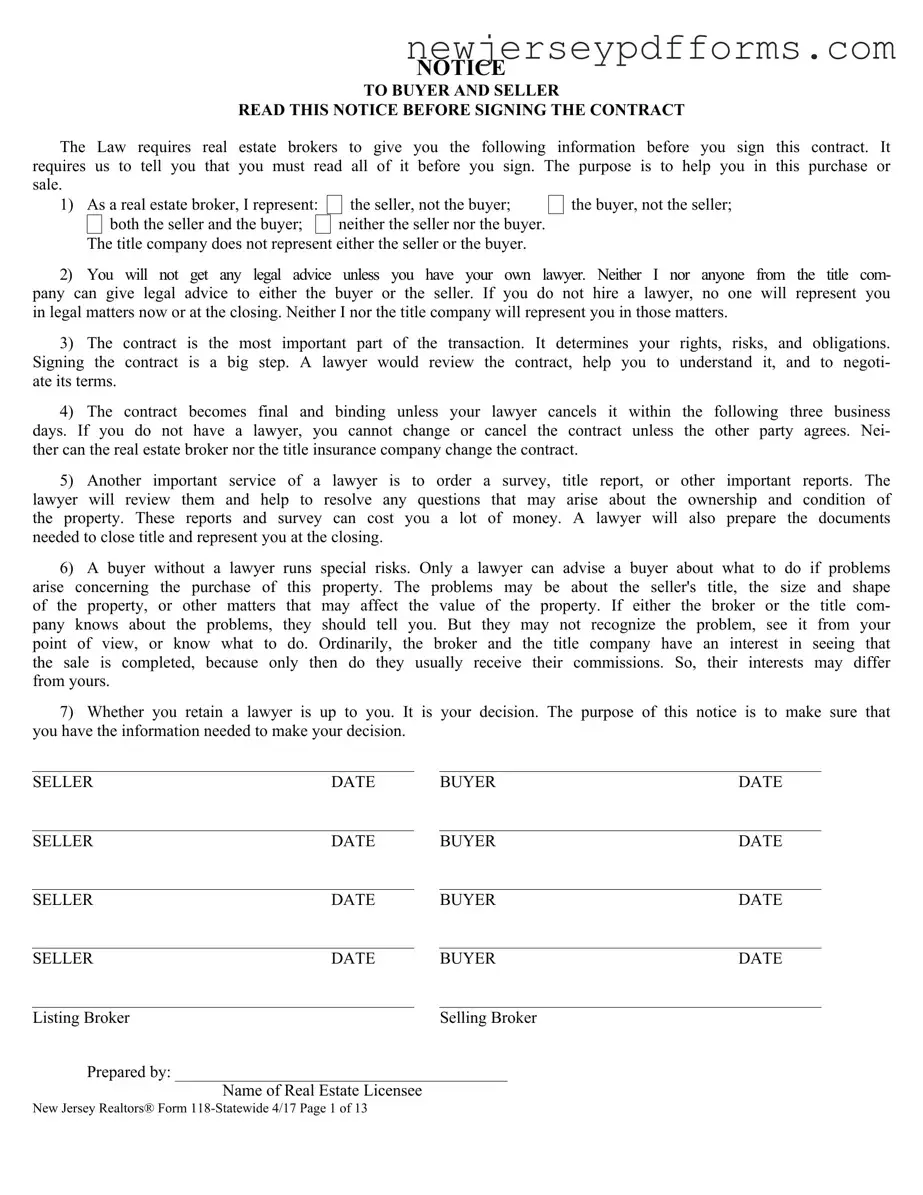What is the purpose of the New Jersey 118 form?
The New Jersey 118 form serves as a legal document that outlines the terms and conditions of a real estate transaction between a buyer and a seller. It is crucial for both parties to understand their rights, obligations, and the risks involved in the sale or purchase of a property. This form is designed to ensure that all parties are informed and protected throughout the transaction process.
Who does the real estate broker represent in a transaction?
The real estate broker may represent different parties in a transaction. They can represent the seller, the buyer, both parties, or neither. It is essential for buyers and sellers to understand who the broker represents, as this affects the level of advocacy and guidance they will receive. The title company involved in the transaction does not represent either party, further emphasizing the importance of having personal legal representation.
Why is it important to have a lawyer when signing the contract?
Having a lawyer is vital because they provide legal advice and guidance that neither the broker nor the title company can offer. A lawyer will review the contract, help you understand its terms, and negotiate on your behalf. They also assist in resolving any issues that may arise, such as title problems or property conditions, ensuring that your interests are protected throughout the process.
What happens if I do not have a lawyer?
If you choose not to hire a lawyer, you face certain risks. You will not receive legal advice, and you may struggle to address any issues that arise regarding the property or the contract. Additionally, the contract becomes binding within three business days unless a lawyer cancels it. Without a lawyer, you cannot change or cancel the contract unless both parties agree, which may not always be feasible.
What is the significance of the attorney review period?
The attorney review period allows buyers and sellers to have their contracts reviewed by a lawyer. This period lasts for three business days after both parties have signed the contract. During this time, a lawyer can advise on potential changes or cancellations. If you do not have a lawyer, the contract becomes final and binding, which may limit your options if issues arise later.
What are the potential costs associated with the New Jersey 118 form?
Costs can vary depending on several factors, including the need for surveys, title reports, and other essential documents. These reports can be expensive, and having a lawyer to order and review them is advisable. Additionally, if any issues arise that require legal resolution, further costs may be incurred. Understanding these potential expenses upfront can help you prepare financially for the transaction.
Can I void the contract after signing it?
Yes, you can void the contract, but certain conditions apply. If you have a lawyer, they can cancel the contract within three business days of signing. If you do not have legal representation, voiding the contract becomes more complicated, as you will need the other party's agreement to make any changes. It is crucial to understand these limitations before signing the contract to avoid potential disputes later on.
